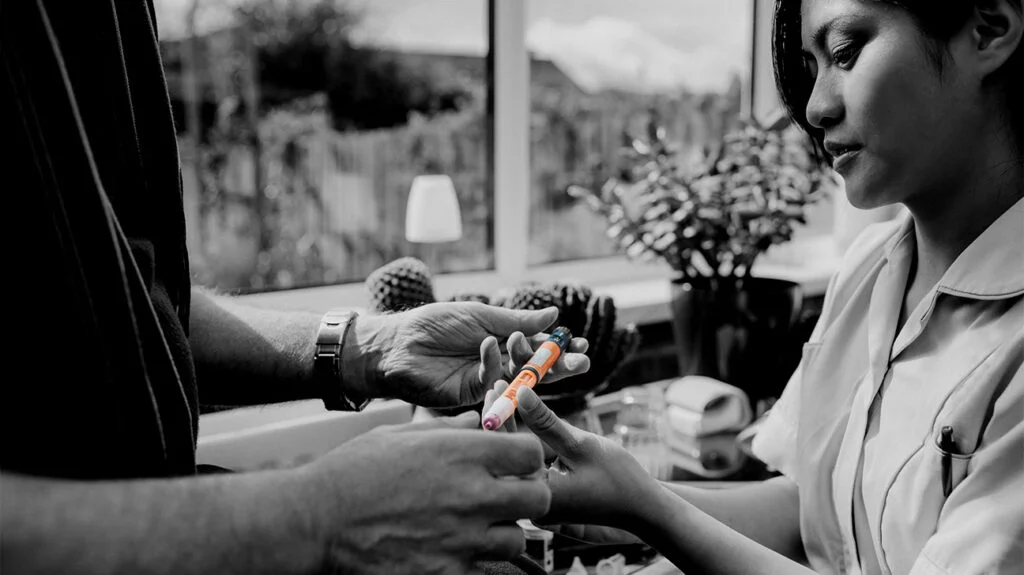Introduction
Insulin-dependent diabetes, often referred to as type 1 diabetes, is an unceasing medical condition characterized by the immune system mistakenly attacking and eradicating insulin-producing beta cells in the pancreas. Consequently, individuals afflicted with type 1 diabetes necessitate insulin therapy to regulate their blood sugar levels and sustain an optimal quality of life. This article delves into the comprehensive realm of managing insulin-dependent diabetes efficiently, aiming to strike a harmonious balance between the requisites of diabetes management and a gratifying, all-encompassing life.
Understanding Insulin-Dependent Diabetes
Insulin-dependent diabetes is an autoimmune disorder where the immune system launches an assault on the pancreas’ beta cells, disrupting the production of insulin. Insulin, a hormone naturally produced by the pancreas, plays a pivotal role in managing glucose levels in the bloodstream. The absence of insulin mandates individuals to administer it externally to maintain appropriate blood sugar levels.
Navigating Daily Life with Insulin-Dependent Diabetes
The daily routine of individuals with type 1 diabetes involves meticulous planning. Regular monitoring of blood sugar levels, precise administration of insulin, mindful dietary decisions, and consistent physical activity constitute crucial components. When diligently managed, these aspects contribute to stabilized blood sugar levels.
Achieving Glycemic Control: The Role of Insulin
Insulin stands as the fundamental tool for regulating blood sugar levels in individuals with insulin-dependent diabetes. Various types of insulin are available, each catering to specific needs. From rapid-acting to long-acting, these insulins serve distinctive purposes in achieving glycemic control. The advent of modern insulin delivery methods, such as the humalog kwikpen 100, has significantly enhanced the ease and precision of insulin administration, promoting better management of diabetes.
Making Informed Dietary Choices
Diet holds immense significance in diabetes management. Individuals with insulin-dependent diabetes must carefully monitor their carbohydrate intake and learn to balance it with insulin doses. A diet rich in whole grains, lean proteins, fruits, and vegetables assists in effectively managing blood sugar levels.
Embracing Physical Activity and Exercise
Regular exercise augments insulin sensitivity, aiding in more effective regulation of blood sugar levels. Tailoring exercise plans, considering one’s insulin regimen and dietary patterns, is critical. Engaging in physical activities that are enjoyable and sustainable contributes to overall health and well-being.
Utilizing Technology in Diabetes Management
The integration of technology has revolutionized diabetes management. Insulin pumps, continuous glucose monitors (CGMs), and contemporary insulin pens like the Humalog KwikPen 100 have simplified the process of insulin administration and blood sugar level monitoring. These advancements ensure more precise dosing and better glycemic control.
Emotional and Psychological Well-being
The emotional and psychological aspects of living with a chronic condition like type 1 diabetes are paramount. The demands of continuous monitoring, potential fluctuations in blood sugar levels, and the requisite lifestyle changes can induce stress and anxiety. Seeking mental health support, participating in support groups, and adopting stress management techniques are vital for emotional well-being.
Building a Supportive Community
A robust support system is fundamental to effective diabetes management. Family, friends, and diabetes support groups offer understanding, encouragement, and practical aid. Sharing experiences and advice within a supportive community can significantly enhance one’s ability to cope with the challenges of insulin-dependent diabetes.
Overcoming Obstacles and Staying Motivated
Effectively managing insulin-dependent diabetes poses specific challenges. Adapting to lifestyle alterations, dealing with the lifelong nature of the condition, and addressing potential complications require determination and tenacity. Staying motivated, setting achievable goals, and celebrating even minor triumphs along the way can boost morale and help maintain a positive outlook.
Conclusion
Efficiently managing insulin-dependent diabetes entails a comprehensive effort. Achieving equilibrium between the demands of diabetes management and leading a gratifying life necessitates an understanding of the condition, informed decision-making, utilization of modern insulin delivery methods like the Humalog KwikPen 100, embracing a supportive community, and prioritizing emotional well-being. By adopting a proactive and holistic approach to diabetes management, individuals can navigate their journey with resilience and poise, ensuring that diabetes does not dominate their lives but becomes an integral part of their distinctive story.

